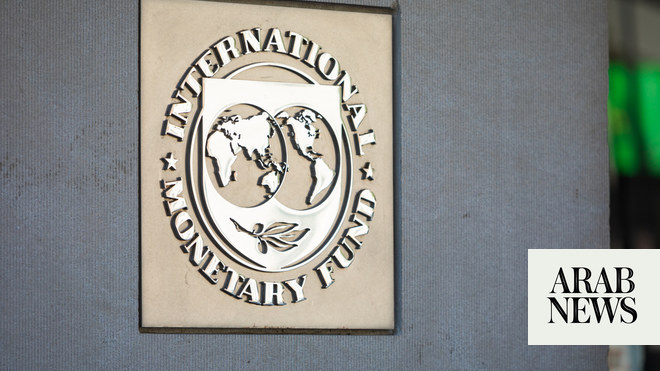
Multinational pharmaceutical firm will be able to improve collaboration with local partners and capitalize on emerging opportunities created by the healthcare transformation underway in the country
RIYADH: Having officially received its regional headquarters license recently, Sanofi is keen to expand its activities in Saudi Arabia further, said Niven Al-Khoury, the multinational pharmaceutical and healthcare company’s general manager for general medicines in the Kingdom and Gulf countries.
“This is a vital move as we reinforce our commitment as a strategic partner to the Saudi Vision 2030,” she told Arab News in an exclusive interview.
According to Al-Khoury, with its new regional headquarters in Riyadh, Sanofi will also be able to improve collaboration with local partners, bring additional investment to the country and better capitalize on emerging opportunities created by the healthcare transformation underway in the country.
“Ultimately, this will allow us to be closer to where our patients and customers are and serve their needs faster and more efficiently, helping improve the quality of life for people and communities across the Kingdom,” she said.
Nurturing Saudi talent
With a rich history spanning more than 50 years, Sanofi has had a longstanding presence in the Kingdom. Today, it has more than 380 employees in Saudi Arabia, of which 207 are Saudi.
“We have been steadfast in our support of Vision 2030, which prioritizes nurturing Saudi talent,” Al-Khoury said. “More than 50 percent of our staff across various functions is Saudi. We are also strategizing to enhance Saudization in the company over the next three years.”
In addition, Sanofi provides a diverse array of educational and training programs for local healthcare practitioners.
“These programs effectively raise awareness about the latest treatments and technologies in diabetes management, which can help significantly reduce diabetes cases in this region,” explained Al-Khoury.
Over the last five years, Sanofi has delivered educational programs to thousands of healthcare professionals in the region — many of whom are talented Saudis. Additionally, it has established several strategic projects to empower pharmacy students and graduates.
“The most important of these is the Step Academy, which started in 2018. It includes summer training and employment in cooperation with King Abdulaziz University in Jeddah, King Saud University and Princess Nourah Bint Abdulrahman University in Riyadh,” explained Al-Khoury. “To date, we have trained more than 250 male and female students.”
Diabetes management
Saudi Arabia ranks among the top 20 countries worldwide for the prevalence of diabetes. There are an estimated 4.2 million diabetes patients in the country, of which around 1.8 million are undiagnosed. Given these alarming numbers, there is an urgent need for a holistic approach to diabetes management.
Sanofi addresses this by delivering individualized care through innovative medicines, digital solutions, education and collaboration through impactful partnerships.
“Sanofi’s innovative offerings, including therapies and digital solutions, have a favorable safety profile, HbA1c-lowering attributes, as well as a substantially reduced risk of weight gain to help patients manage their condition effectively,” Al-Khoury said.
She said that Sanofi’s ambition is to be the leading digital healthcare platform for patients, providers and researchers, combining innovative therapeutic options with smart solutions to make life easier for patients using insulin.
Amongst its notable collaborations, Sanofi signed a memorandum of agreement with the Saudi Ministry of Health and Saudi Health Council to adopt a Comprehensive Diabetes Management program, including diabetes education for primary healthcare centers.
Sanofi works with its partners, the Saudi Ministry of Health and Saudi Health Council, to provide an array of educational and training programs for healthcare practitioners.
“In 2022, we helped train more than 1,000 primary care practitioners in the Kingdom to support patients living with diabetes,” Al-Khoury informed.
Through its scientific research and continuing medical education programs, Sanofi brings innovation, improved access to quality healthcare, enhances the practice of medicine and further builds sustainable healthcare for society.
Since 2020 Sanofi launched and completed three real-world evidence studies in Saudi Arabia and the Gulf region, analyzing a dataset of around 1,000 subjects. These generated valuable insights into real clinical practice and a better understanding of the patient pathway.
“The results of these studies are expected to be published in international scientific journals and conferences,” Al-Khoury said. “We are also preparing for a new RWE study, expected to be launched in Saudi Arabia in 2023.”
Individualized patient care
There is an enormous demand for individualized patient care for patients living with diabetes, she informed. As such, Sanofi is working closely with healthcare professionals to provide the best possible care for patients through its range of therapeutic options, smart devices and services.
Sanofi uses a broad portfolio of digital and personal technology to deliver better outcomes for people living with diabetes in the Kingdom.
According to Al-Khoury, raising awareness and improving access to new standards of care is also crucial as are providing educational and training programs for healthcare practitioners, physicians as well as pharmacists.
“This will help facilitate comprehensive, high-quality healthcare to people living with diabetes and bolster the country’s public health,” she said. “It aligns with Saudi Vision 2030, which aims to have a comprehensive, effective and integrated health system, as well as allow equitable access to health services.”
Innovative portfolio
Sanofi’s innovative portfolio in the areas of diabetes, cardiovascular, vaccines, rare disease, immunology, oncology, and consumer healthcare empowers it to serve a wide range of patients in the Kingdom.
“We are a strategic partner to the Kingdom’s robust healthcare sector and key contributor to the nation’s economic diversification strategy and aspirations,” said Al-Khoury.
According to her, Sanofi is committed to the Kingdom’s Vision 2030, which aims to reduce the burden of imported medicines, generate high-skilled jobs, achieve national drug security, increase foreign direct investment and help position the Kingdom as the regional hub for biopharma and vaccine manufacturing.
FASTFACT
Over the last five years, Sanofi has delivered educational programs to thousands of healthcare professionals in the region — many of whom are talented Saudis. Additionally, it has established several strategic projects to empower pharmacy students and graduates.
“Sanofi is reinforcing its presence in the Kingdom and strengthening its partnership with the Saudi government by transferring its technology and know-how and localizing the manufacturing of its insulins and vaccines,” Al-Khoury added.
Recently, Sanofi has signed a strategic partnership with Saudi-based Sudair Pharmaceutical Co. for the technology transfer and localization of Sanofi’s full insulin portfolio to fulfill the demand of the Saudi market. In addition, this union will increase local production and ensure national drug security to serve and meet the community’s needs.
Digital transformation
What’s more, Sanofi is enhancing patient care through digital transformation. It has developed tools that can be integrated into patients’ daily routines while offering individualized care. Its smart solutions make life easier for patients using insulin.
It launched “My Dose Coach” in the Gulf region, a first-of-its-kind approved digital titration solution that helps patients and healthcare professionals to work together toward target fasting blood glucose and hence better control through insulin dose optimization.
“This also allows healthcare professionals to gain a more comprehensive view of patients to read trends and patterns and not just numbers, allowing them to work remotely to make better medical decisions,” concluded Al-Khoury.












